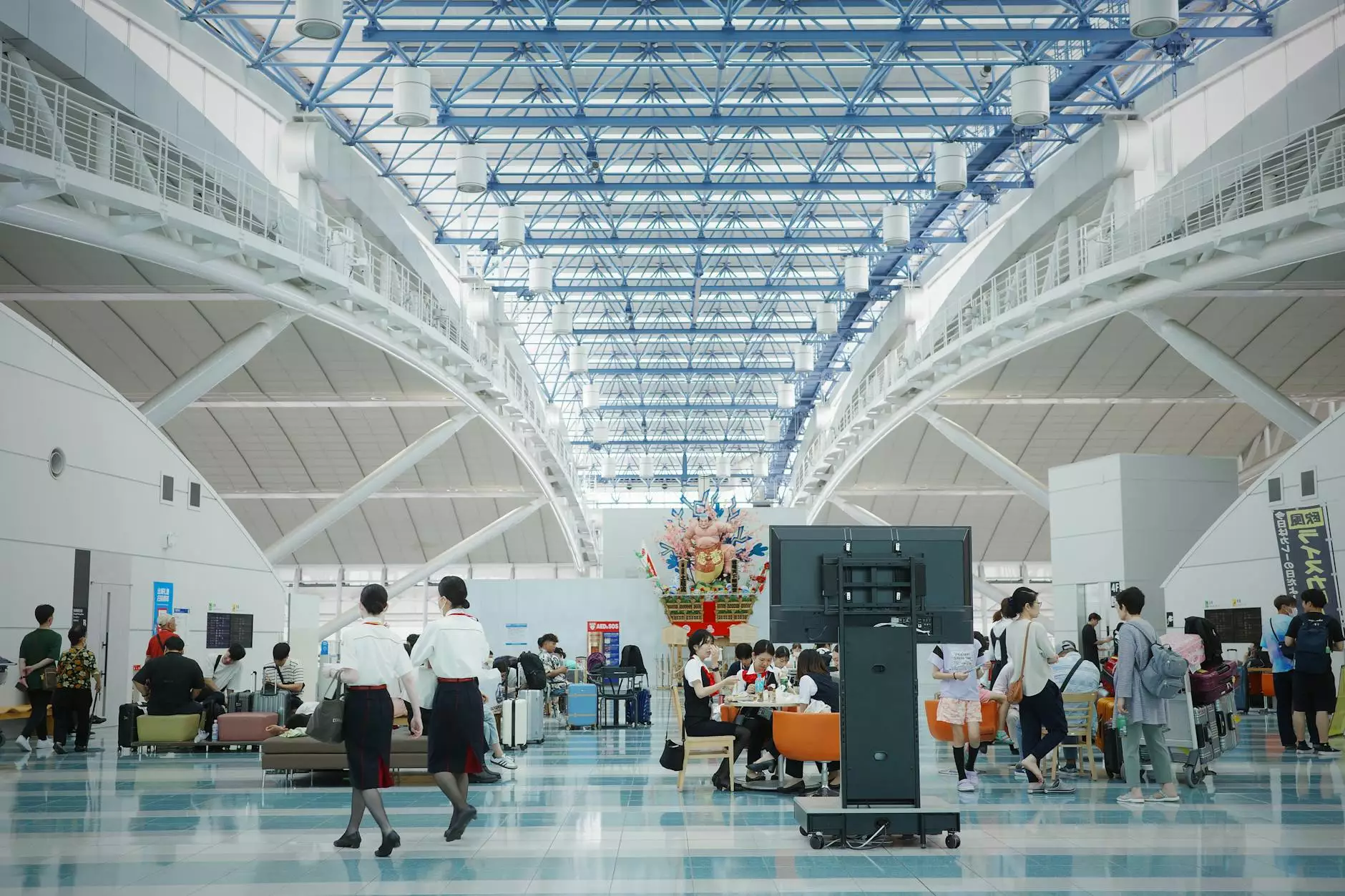The Essential Guide to Air Ticketing and Cargo Management

Understanding Air Ticketing
Air ticketing is a vital component of the aviation industry, representing the mechanism through which airlines manage their ticket sales.Air ticketing not only involves the sale of tickets but also encompasses a variety of services such as reservations, payments, and customer support.
A Brief History of Air Ticketing
The evolution of air ticketing can be traced back to the early days of commercial aviation in the 1920s. Initially, tickets were issued manually and the process was time-consuming. However, with advancements in technology and the introduction of Computerized Reservation Systems (CRS) in the 1960s, ticketing became more streamlined and efficient.
How Air Ticketing Works
At its core, air ticketing involves several key steps:
- Flight Search: Customers search for available flights using various platforms such as airline websites, travel agencies, or online travel aggregators.
- Booking: Once a suitable flight is found, customers can book their tickets. This process can include selecting travel dates, choosing seats, and additional services such as baggage allowances.
- Payment: After confirming the booking, the payment process takes place, involving secure online payment gateways.
- Issuance of e-Ticket: Upon successful payment, an electronic ticket (e-ticket) is generated and sent to the customer via email.
The Importance of Cargo Management in Aviation
Cargo management is equally crucial in the aviation sector. It refers to the planning, execution, and monitoring of the cargo transportation process. Proper cargo management ensures that goods are transported efficiently and safely to their destinations.
Key Components of Cargo Management
Effective cargo management involves several vital components:
- Booking Management: Just like air ticketing, cargo management begins with the booking phase where shipments are booked on specific flights.
- Documentation: Ensuring all necessary paperwork is completed, which may include customs declarations, air waybills, and commercial invoices.
- Tracking and Monitoring: Utilization of tracking systems to monitor the progress of cargo shipments, ensuring timely delivery.
- Warehousing and Distribution: Efficient management of warehousing facilities to store cargo until it is ready for distribution.
Synergy Between Air Ticketing and Cargo Management
The interplay between air ticketing and cargo management is essential for the profitability of airlines and the satisfaction of customers. A well-structured air ticketing system allows for seamless integration with cargo operations, facilitating efficient communication and resource allocation.
Challenges in Air Ticketing and Cargo Management
Despite advancements in technology, the aviation industry faces numerous challenges in air ticketing and cargo management:
- Price Volatility: Fluctuating fuel prices can impact ticket prices and cargo transport costs.
- Regulatory Compliance: Strict regulations enforced by aviation authorities can complicate processes.
- Customer Expectations: Increasing customer expectations for faster services require adaptation and swift operational changes.
- Technological Integration: Integrating new technologies into existing systems can be daunting for many airlines.
Best Practices for Optimal Air Ticketing
To optimize air ticketing processes, airlines can implement several best practices:
- Utilize Advanced Technology: Employing modern booking systems provides a competitive edge and enhances customer experience.
- Data Analytics: Use data analysis to understand customer preferences and improve marketing strategies.
- Strong Customer Support: Providing robust support through various channels ensures customer satisfaction.
- Regular Training: Ongoing training for staff on new technologies and customer service trends enhances operational efficiency.
Optimizing Cargo Management Operations
For effective cargo management, airlines should consider the following approaches:
- Implement Automation: Automating booking and tracking processes can significantly reduce human error and improve efficiency.
- Build Strategic Partnerships: Collaborating with logistics providers can streamline operations and enhance service offerings.
- Real-Time Tracking: Investing in technologies that allow real-time tracking of cargo enhances transparency and customer trust.
- Sustainability Practices: Adopting green practices can reduce the carbon footprint and improve corporate image.
The Role of Airlines in Air Ticketing and Cargo Management
Airlines play a pivotal role in ensuring both air ticketing and cargo management are executed smoothly. They serve as the bridge connecting customers to air travel services while managing the logistics of cargo transportation.
Key Functions of Airlines
Airlines are responsible for:
- Route Planning: Developing routes that maximize profitability while catering to customer demand.
- Fleet Management: Ensuring that the aircraft are maintained and operated efficiently, providing both passenger and cargo services.
- Revenue Management: Implementing strategies to optimize pricing and yield, balancing demand and capacity.
- Marketing and Promotion: Engaging customers through targeted marketing campaigns to boost ticket sales and cargo bookings.
The Future of Air Ticketing and Cargo Management
As the aviation industry continues to evolve, the future of air ticketing and cargo management is expected to be shaped by several trends:
- Increased Automation: Continued progress in automation will lead to faster processing times and reduced operational costs.
- Blockchain Technology: Implementing blockchain could enhance security and transparency in transactions and cargo handling.
- Artificial Intelligence: AI will likely play a more significant role in personalizing customer experiences and improving operational efficiency.
- Emphasis on Sustainability: The industry will increasingly focus on reducing its environmental impact through sustainable practices.
Conclusion
The synergy of air ticketing and cargo management is fundamental to the success of the aviation industry. With constant advancements in technology and growing customer expectations, airlines must adapt to stay competitive in the marketplace. By implementing best practices and embracing innovations, the industry can ensure a seamless travel experience for passengers and efficient cargo transport solutions.
Get Involved with Awery.aero
At Awery.aero, we are committed to providing cutting-edge solutions that enhance the efficiency of air ticketing and cargo management. With our extensive experience in airlines, airport terminals, and aviation services, we are well-equipped to help businesses thrive in the dynamic world of aviation.



